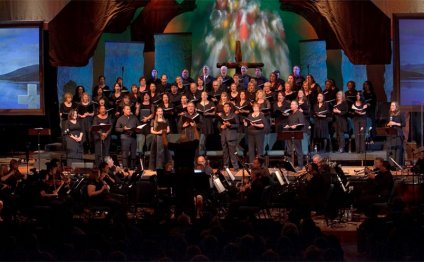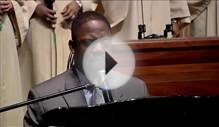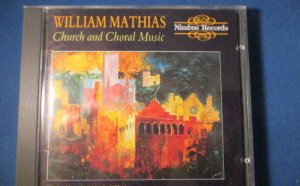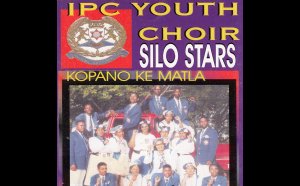
Used Church Choir Music
 Ed. note: Today we are pleased to present a guest post from Kimberly Sena Moore, MM, NMT-F, MT-BC. Kimberly is a board-certified music therapist and neurologic music therapist in private practice. She works with children, teenagers, and adults, using music and rhythm to improve their quality of life. Click on her name above for a full biography.
Ed. note: Today we are pleased to present a guest post from Kimberly Sena Moore, MM, NMT-F, MT-BC. Kimberly is a board-certified music therapist and neurologic music therapist in private practice. She works with children, teenagers, and adults, using music and rhythm to improve their quality of life. Click on her name above for a full biography.
“Our bodies like rhythm and our brains like melody and harmony.”
-Daniel Levitin
There are over 5, 000 board-certified music therapists in the United States. And there’s one question we get asked daily:
What is music therapy?
According to the American Music Therapy Association, “Music Therapy is the clinical and evidence-based use of music interventions to accomplish individualized goals within a therapeutic relationship by a credentialed professional who has completed an approved music therapy program.”
Simply put, we use music to make your life better. Whether you need help socially, cognitively, physically, emotionally, or developmentally, music can help you get better…and music therapists are well-trained on how to do that.
What’s more interesting, though, is why it works. When used properly, music can be an incredibly powerful treatment tool. And not just because it’s fun, relaxing, and motivating, but because music has a profound impact on our brains and our bodies.
So here are my top 12 brain-based reasons why music works in therapy:
- Music is a core function in our brain. Our brain is primed early on to respond to and process music. Research has shown that day-old infants are able to detect differences in rhythmic patterns. Mothers across cultures and throughout time have used lullabies and rhythmic rocking to calm crying babies. From an evolutionary standpoint, music precedes language. We don’t yet know why, but our brains are wired to respond to music, even though it’s not “essential” for our survival.
- Our bodies entrain to rhythm. Have you ever walked down the street, humming a song in your head, and noticed that your walking to the beat? That’s called entrainment. Our motor systems naturally entrain, or match, to a rhythmic beat. When a musical input enters our central nervous system via the auditory nerve, most of the input goes to the brain for processing. But some of it heads straight to motor nerves in our spinal cord. This allows our muscles to move to the rhythm without our having to think about it or “try.” It’s how we dance to music, tap our foot to a rhythm, and walk in time to a beat. This is also why music therapists can help a person who’s had a stroke re-learn how to walk and develop strength and endurance in their upper bodies.
- We have physiologic responses to music. Every time your breathing quickens, your heart-rate increases, or you feel a shiver down your spine, that’s your body responding physiologically to music. Qualified music therapists can use this to help stimulate a person in a coma or use music to effectively help someone relax.
- Children (even infants) respond readily to music. Any parent knows that it’s natural for a child to begin dancing and singing at an early age. My kids both started rocking to music before they turned one. And have you seen the YouTube video of the baby dancing to Beyonce? Children learn through music, art, and play, so it’s important (even necessary) to use those mediums when working with children in therapy.
- Music taps into our emotions. Have you ever listened to a piece of music and smiled? Or felt sad? Whether from the music itself, or from our associations with the music, music taps into our emotional systems. Many people use this in a “therapeutic” way, listening to certain music that makes them feel a certain way. The ability for music to easily access our emotions is very beneficial for music therapists.
- Music helps improve our attention skills. I was once working with a 4-year-old in the hospital. Her 10-month-old twin sisters were visiting, playing with Grandma on the bed. As soon as I started singing to the older sister, the twins stopped playing and stared at me, for a full 3 minutes. Even from an early age, music can grab and hold our attention. This allows music therapists to target attention and impulse control goals, both basic skills we need to function and succeed.
- Music uses shared neural circuits as speech. This is almost a no-brainer (no pun intended), but listening to or singing music with lyrics uses shared neural circuits as listening to and expressing speech. Music therapists can use this ability to help a child learn to communicate or help someone who’s had a stroke re-learn how to talk again.
- Music enhances learning. Do you remember how you learned your ABCs? Through a song! The inherent structure and emotional pull of music makes it an easy tool for teaching concepts, ideas, and information. Music is an effective mnemonic device and can “tag” information, not only making it easy to learn, but also easy to later recall.
- Music taps into our memories. Have you ever been driving, heard a song on the radio, then immediately been taken to a certain place, a specific time in your life, or a particular person? Music is second only to smell for it’s ability to stimulate our memory in a very powerful way. Music therapists who work with older adults with dementia have countless stories of how music stimulates their clients to reminisce about their life.
- Music is a social experience. Our ancestors bonded and passed on their stories and knowledge...
YOU MIGHT ALSO LIKE



Share this Post
Related posts
Christ Church Choir Music
ARTIST-IN-RESIDENT & PRINCIPAL ORGANIST Thomas Murray, the Principal Organist & Artist in Residence at Christ…
Read MoreChurch Choir Music free download
Dr. William Cutter, Director, presents the MIT Concert Choir, December 2, 2006, Kresge Auditorium, MIT. Featuring: David…
Read More










